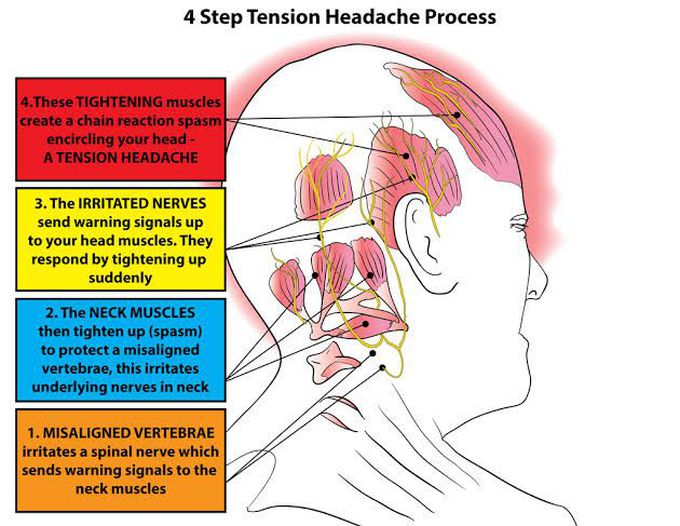

Iqraover 2 years ago

Tension headache
A tension-type headache causes mild to moderate pain that's often described as feeling like a tight band around the head. A tension-type headache is the most common type of headache, yet its causes aren't well understood. Treatments are available. Managing a tension-type headache is often a balance between practicing healthy habits, finding effective nonmedicine treatments and using medicines appropriately.
Other commentsSign in to post comments. You don't have an account? Sign up now!
Related posts
herniation secondary to raised ICPHyperekplexiaSymptoms of HyperekplexiaDandy Walker Malformation | Diagnosis symptoms and treatment2-Minute Neuroscience: Brain AneurysmsSeizures (Epilepsy) Nursing NCLEX: Tonic-Clonic, Generalized, Focal, SymptomsStroke: Causes, Risk Factors, Treatment, and Prevention | Mass General BrighamNeurofibromatosisAbsence seizuresSymptoms of absence seizures

